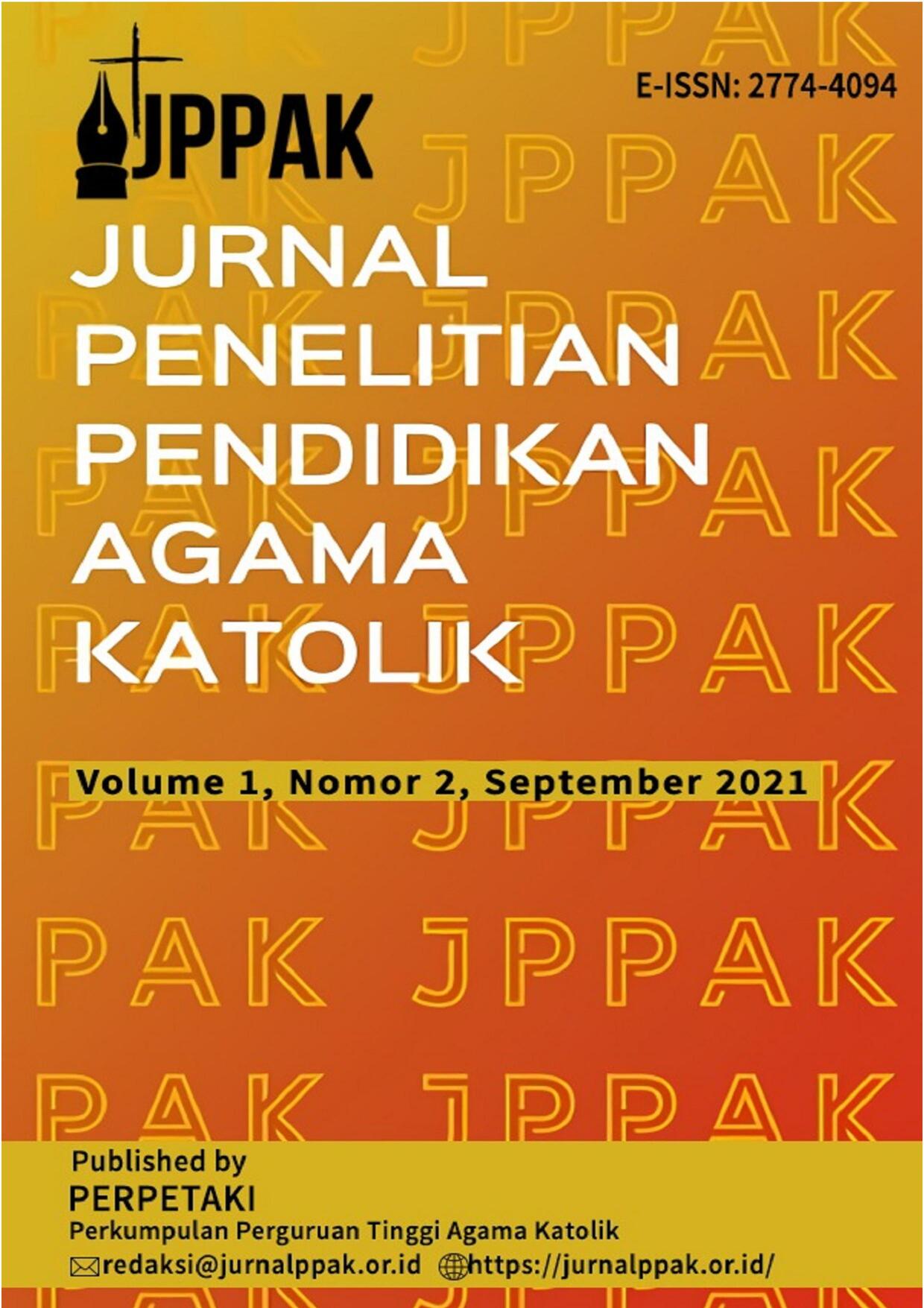The Knowing of God in the Life of Catholic Youths
DOI:
https://doi.org/10.52110/jppak.v1i2.16Keywords:
Hope, Faith, Hardships, and Sufferings of Life, FaithfulAbstract
The purpose of this research is to deepen the knowledge of God in the experience of human life every day so that His paradoxical existence does not stop humans from getting to know Him more. This research has four problem formulations. First, how do young Catholics understand hope? Second, how do young Catholics understand the faith? Third, how do young Catholics experience God when faced with life's difficulties and sufferings? Fourth, what makes young Catholics hope and believe in God until now? This study uses a descriptive research method with a qualitative approach. The informants of this study were 13 young Catholics who had various educational and work backgrounds, places of residence, and ages. The data collection techniques used were interviews via Facebook and Instagram and sharing google forms questions via email. The results of this study indicate that hope is understood as the gripping force of human life. While faith is the basis of hope and trust in God which enables a person to experience His presence and help in dealing with the difficulties and sufferings of life. Thus, young Catholics hope and believe in God in life, even though the reality is not always easy. This study found that knowing God will only be experienced if a person has a good and deep understanding of hope and faith in his life's pilgrimage in this world.
Downloads
##submission.downloads##
Submitted
Accepted
Published
How to Cite
Issue
Section
License
Copyright (c) 2021 Jurnal Penelitian Pendidikan Agama Katolik

This work is licensed under a Creative Commons Attribution 4.0 International License.
Copyright Notice and Permissions
Jurnal Penelitian Pendidikan Agama Katolik offers immediate open access to all its content on the principle to make researches freely available to the public, especially to the scholars, to support greater global exchanges of knowledge. This journal encourages all scholarly authors to allow their research openly available, free access and without time restrictions.
All articles published Open Access will be immediately and permanently free for everyone to read and download. Under the CC BY-SA 4.0 license, authors retain ownership of the copyright for their article, however authors grant others permission to use the content of publications in Jurnal Penelitian Pendidikan Agama Katolik (JPPAK) in whole or in part provided that the original work is properly cited. Users (redistributors) of Jurnal Penelitian Pendidikan Agama Katolik (JPPAK) are required to cite the original source by including at least: the full title of the article, the author's or authors' full name(s), JPPAK as the initial source of publication, year of publication and volume number using a propriate citing method.
Copyright encompasses exclusive rights to reproduce and deliver the article in all form and media, including reprints, photographs, microfilms and any other similar reproductions, as well as translations. The reproduction of any part of this journal, its storage in databases and its transmission by any form or media, such as electronic, electrostatic and mechanical copies, photocopies, recordings, magnetic media is prohibited without consent of Jurnal Penelitian Pendidikan Agama Katolik (JPPAK).
Jurnal Penelitian Pendidikan Agama Katolik (JPPAK) is licensed under a Creative Commons Attribution Share-Alike 4.0 International. (CC BY-SA 4.0)
Authors who publish with Jurnal Penelitian Pendidikan Agama Katolik (JPPAK) agree to the following terms:
- Authors retain copyright and grant the journal right of first publication with the work simultaneously licensed under a Creative Commons Attribution Share-Alike 4.0 International (CC BY-SA 4.0) license that allows others to share the work with an acknowledgement of the work's authorship and initial publication in this journal.
- Authors are able to enter into separate, additional contractual arrangements for the non-exclusive distribution of the journal's published version of the work (e.g., post it to an institutional repository or publish it in a book), with an acknowledgement of its initial publication in this journal.
- Authors are permitted and encouraged to post their work online (e.g., in institutional repositories or on their website) after the publication on JPPAK, as long as it not published on other OJS for it will be treated as plagiarism by plagiarism checker apps. It can lead to productive exchanges, as well as earlier and greater citation of published work (See The Effect of Open Access).












